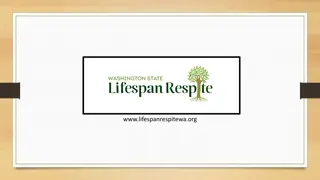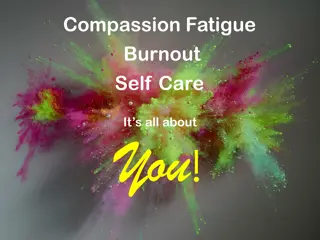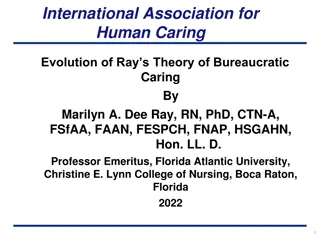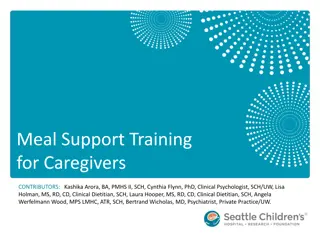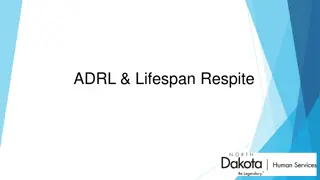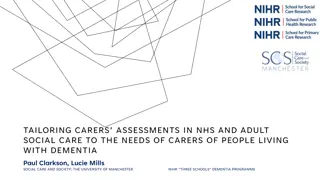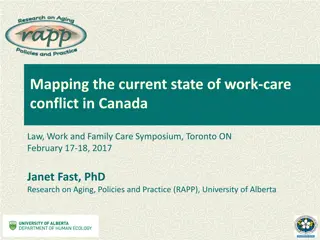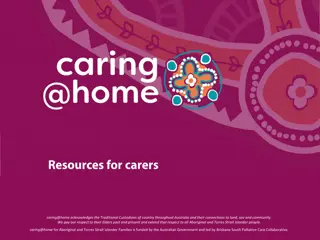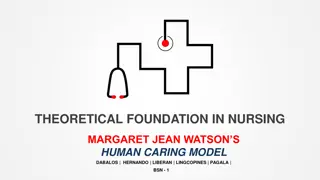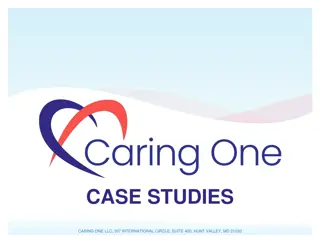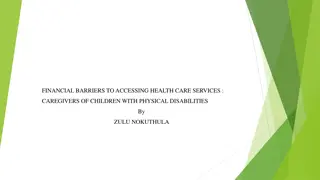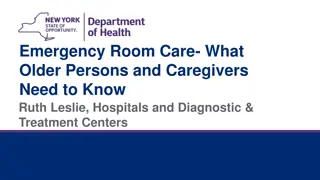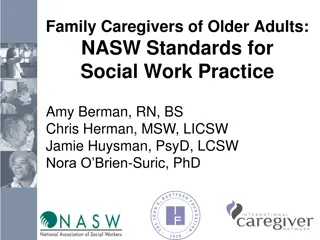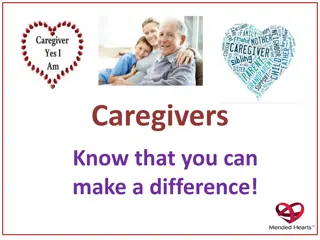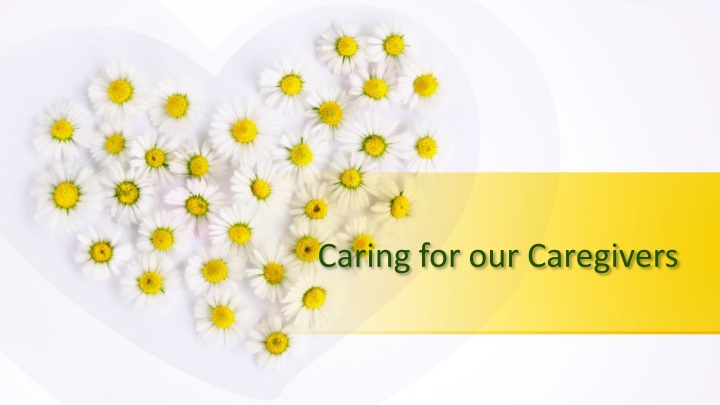
Supporting Caregivers: Understanding Their Role and Challenges
Discover the essential role of caregivers in our society, their responsibilities, and the challenges they face, especially during times like the COVID-19 pandemic. Learn about the importance of caregiving, the impact on mental and physical health, and the strains of financial uncertainty. Gain insights into the demographics of caregivers and the unique challenges they encounter in providing care.
Download Presentation

Please find below an Image/Link to download the presentation.
The content on the website is provided AS IS for your information and personal use only. It may not be sold, licensed, or shared on other websites without obtaining consent from the author. If you encounter any issues during the download, it is possible that the publisher has removed the file from their server.
You are allowed to download the files provided on this website for personal or commercial use, subject to the condition that they are used lawfully. All files are the property of their respective owners.
The content on the website is provided AS IS for your information and personal use only. It may not be sold, licensed, or shared on other websites without obtaining consent from the author.
E N D
Presentation Transcript
Slide Title Elisabeth Ann Bostian-Neal Licensed Clinical Social Worker Springwoods Behavioral Health Chief Clinical Officer
What is a caregiver A caregiver is defined as a family member or paid helper who regularly looks after a child or a sick, elderly, or disabled person. They most commonly assist with impairments related to old age, disability, a disease, or a mental disorder. Caregivers may work in a home or a facility.
Caregiver responsibilities/duties These may include taking care of someone who has a chronic illness or disease, managing medications, talking to doctors and/or nurses on their behalf, bathing, dressing, chores.
Importance With our aging population this role has become increasingly recognized as so important, functionally and economically. It has become increasingly stressful with Covid.
E.O. Tackett Grandpa Tackett 1922-2005
Challenges Covid and social distancing Mental health Physical health Isolation/lack of connection to people No access to family paid leave (50 percent) Financial strains (late bills, not paying mortgage, giving up savings, debt Uncertainty
In home care In a recent study in April of 2021 by the University of Pittsburg, 55% of caregivers were female and 64% were over 65. One third were adult children, 25% were spouses, and 20% were the parent. (Compared caregivers and non- caregivers)
Challenges of COVID and caretaking Increased caregiving duties (more emotionally difficult) Decline in recipient s mental health Trouble with access to providers Difficulties getting food and medical supplies (paying for food) Anxiety, sleep disturbance, fatigue
Burnout Burnout is a combination of 3 Emotional exhaustion-emotional resources depleted Depersonalization-cynicism towards clients Reduced personal accomplishments- negative evaluation of work ability
, Taking care of caretakes We are in this together (Normalize) Take a walk/garden Check in on each other Access community resources Mindfulness/prayer/relaxation Spend time virtually/zoom
Caregiver support groups There are many groups, ranging from zoom to blogs Stuctured/unstructed Group or one on one
51% of caregivers surveyed stated they do find meaning in the caretaking, and not only love, but put the love into action.
Signs and symptoms of depression (in the elderly) Sadness and/or despair Unexplained or aggravated aches/pains Loss of interest in socializing/hobbies Weight loss or loss of appetite Feelings of hopelessness or helplessness Lack of motivation and energy
How can we help? Normalizing (losing independence, loved ones, physical health, loss of purpose, isolation) Overcoming depression may involve adapting to change, finding new things you enjoy, connecting to your community and loved ones
More. Gratitude Pets Purpose Clubs/classes on-line groups/friends Write memoirs Eat and sleep
Reminder While caring for others, remember they are their own person with their own human dignity, and to be respectful of their space and boundaries.
The 4 agreements by Miquel Ruiz 1. Be impeccable with your word 2. Don t take anything personal 3. Don t make assumptions 4. Always do your best
We can complain because we have rose bushes, or rejoice because thorn bushes have roses. Abraham Lincoln


